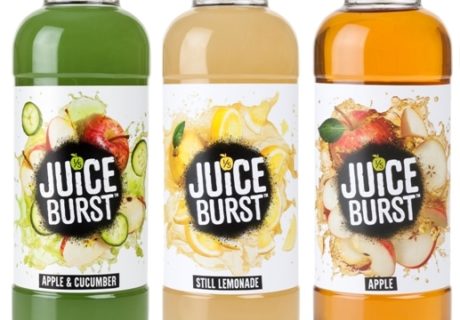Ahead of Natural & Organic Products Europe (NPE) in April, show organizer Diversified Communications has been hearing from industry figures about trends, innovation, opportunities, challenges and the ‘ones to watch’ for 2018.
In a blog published on the NPE website, contributors explain why veganism, sustainable packaging and Brexit are among the topics they’re most interested in observing over the coming year.
Which one trend, opportunity or challenge do you think will have the biggest impact on the natural and organic industry in the coming year?
Alan Martin, director, Food for Thought and co-founder, BonPom:
This year we’ve seen the largest sign-up to date for Veganuary, with the popular press – from The Guardian and Observer to the Daily Mirror – clamouring to publish recipes, articles, viewpoints and in-depth articles on the rise of Veganism in the UK. Major supermarket chains such as Tesco and Sainsbury’s are launching vegan ranges and on the high street the likes of Zizzi, PizzaExpress and Pret a Manger have vegan offerings. This all adds up to opportunity for the independent health food business, with countless more people seeking out products or advice. It’s there for you; grab a slice!
Lucy Gatward, marketing manager, Better Food:
Packaging presents both a challenge and an opportunity in conscious food retail. Single-use packaging is so ingrained in the supply chain, finding alternatives that deliver the same benefits, such as convenience and freshness, can be a struggle. Even some of the more innovative solutions come with a whole new set of issues when you look at the bigger picture, and in the organic market we have to be mindful of non-organic plant based plastics.
But there are some brilliant solutions emerging, as well as a return to reusable containers. At Better Food we’re championing tiffin tins, refillable wine, shampoos and cleaning products, and brilliant bees wax wraps as an alternative to cling film.
Packaging presents both a challenge and an opportunity in conscious food retail.
Alison Wilde, marketing director, Naturya:
Whilst veganism is still a hot topic with consumers and journalists alike for 2018, what we are seeing is the impact of the ‘plant-based diet’ becoming increasingly common; the benefits are clear and it is more achievable than a vegetarian or vegan diet. Meat-free Mondays and Veganuary are promotions becoming more mainstream, with consumers experimenting with reducing their meat intake and looking for meat-free alternatives when shopping or dining out.
Plants contain an incredible matrix of micronutrients that can help address growing consumer issues such as low energy levels, increased stress and anxiety and the desire to keep fit and active. Nutrient-rich superfoods such as maca, cacao and hemp, as well as plant proteins, will be the trending products in 2018 to help us live life well.
Lee Holdstock, trade relations manager, Soil Association:
As new in-depth research from Soil Association Certification will shortly reveal, consumer mistrust of the food industry continues to grow. With another year of market expansion and Brexit uncertainly, if there’s going to be one big theme for organic, my money is on integrity. With consumers increasingly demanding ‘food as it should be’, independent, credible marks of trust such as the Soil Association symbol will be ever more important. But we know there’s more certifiers can do which is why, for us, 2018 will see more support for supply chain collaboration and wider adoption of technology-based integrity solutions.
Maria Dawson, sales and marketing director, Clearspring:
We are sure the hot topic for the entire natural and organic industry is, of course, the vegan/plant based and conscious-living movement, which is sweeping through everything and going mainstream. It’s coming full circle to where Clearspring started over 25 years ago. Clearspring has always believed in providing quality organic products that are sustainable, have integrity and are 100% vegan. Connecting the awareness of the environmental impact on the planet with food, be it through supporting organic producers, the supply chain and maintaining traditions, is what we are here to do. This movement shouldn’t just be a trend. It’s a way of living for a sustainable planet and providing for future generations and it must stay.
Rosie Greenaway, editor, Natural Products News:
There are many trends and areas of development that I’ll be watching closely this year, but for me personally the key player is packaging. There is already some encouraging activity in the industry but we still have a long way to go. As more and more fledgling brands hit the market with ground-breaking innovation and NPD, it’s possible that we’ll see them lead the way in reducing packaging waste, with the more established brands playing catch up. Equally, it will be interesting to see which country drives the movement forward with the most genuine commitment.
2018 will see more support for supply chain collaboration and wider adoption of technology-based integrity solutions
Cheryl Thallon, founder and managing director, Viridian Nutrition:
After reviewing a vast array of nutrition and herbal research, and speaking with leading influencers, Viridian Nutrition has duly recognized saffron, naming it the ‘Viridian Ingredient of the Year 2018’ in further anticipation of its positive influence on health.
Saffron, known for being more expensive than gold, comes from the stigmas of the delicate Crocus sativus flower and its cultivation and use dates back more than 3,500 years, in both Roman and Egyptian texts. In modern times, its health properties have attracted considerable scientific interest. Chief among them are studies on its mood-lifting activity, trials on relieving symptoms of premenstrual syndrome and enhancing cognitive ability.
Shona Wilkinson, technical and corporate nutritionist:
The term ‘functional food’ was first used with the launch of foods such as Benecol and Flora. We are now seeing a huge increase in the popularity of functional foods and the introduction of new products to the market. You only had to attend Expo West in America last year to notice the food hall expanding dramatically from previous years and the supplement hall shrinking just as dramatically.
Pre- and probiotics dominate this trend, with the introduction of more fermented foods as well as probiotics added to almost every food you can imagine! Eg probiotic chocolate, drinks, creams and sweets, to name just a few. How we sell these products with no EFSA health claims could demand the use of some incredibly inventive wording!
Mel Jenkinson, founder, Glow Organic:
I have received numerous emails this year already from customers stating they are going on a ‘plastic ban’ throughout January, and so are requesting brands that don’t use any plastic in their packaging. This is the first year this has happened, which is amazing and just shows how much people care once they become aware of the problem. I have also noticed more women are requesting vegan products. As the interest in the vegan diet increases, women are naturally looking to switch their beauty products to vegan alternatives.
I have received numerous emails this year already from customers stating they are going on a ‘plastic ban’ throughout January
Joanne Hill, director, Amaranth Natural Health and Wellbeing:
In terms of opportunities, the trend towards vegan and plant based diets continues. Vegan diets are becoming much more mainstream and we are seeing many customers who are taking steps to being more plant based. Increased publicity of antibiotic resistance in animal products and welfare issues, particularly with Brexit and a potential move towards more US imports will fuel this trend. This brings opportunities for new products and new customers. In addition to vegan foods, I predict that we will see growth in vegan skincare and make up as this trend continues.
Nicki Stribley, sales director, Queenswood Natural Foods:
Thanks to recent mainstream media, what has been a big focus for us has now been brought to the attention of the masses. Reducing the country’s plastic waste has now been pledged in government, which will bring added pressures to industry manufacturers and distributors like ourselves.
We have taken this opportunity to look at our own processes and how we can reduce plastic waste. The first step we have taken is to remove all the packaging from the monthly brochures we direct mail. Opting for the ‘naked’ packaging approach will reduce a large quantity of plastic packaging, which is thrown away every month. Although the plastic we were using was recyclable, we have taken a bigger step towards environmentally friendly practices and scrapped it all together. We feel this is a challenge the natural and organic industry will face in 2018 as we look at alternative, sustainable but practical materials to replace plastic.
In addition to vegan foods, I predict that we will see growth in vegan skincare and make up
Gemma Chase, head of marketing, BigGreenSmile.com:
Natural beauty is no longer a niche market. Over the last 12 months it’s increased in share and range and is going to take an even greater slice of the beauty market in 2018, with the introduction of new natural beauty lines from the beauty giants, such as Unilever and L’Oréal. The Millennial customers are even more conscious about what is in their products, needing 100% transparency, so we will see a rise in natural ingredients being added to mainstream beauty products. We believe this presents a great opportunity to specialist businesses such as ours, with more customers looking for established and trusted natural beauty products online. We are constantly increasing our range in the UK and Europe, adding products from around the world to offer the very best choice, giving customers 100% transparency on ingredients, origin and ethics.
Jim Manson, editor-in-chief, Natural Products Global:
One of the biggest opportunities for our industry is better marrying up the personal health and the environmental health stands of what we do. The Government’s recent pledge of a Green Brexit and food and farming policy that makes preserving ‘natural capital’ and improving the health of citizens top priorities for the future suggests that big policy changes might finally be coming. If we can show clearly that our products – health, beauty and food – and our approaches to production – environment-friendly, high animal welfare standards, sustainable – are a natural fit with these new priorities we could be entering a golden era for natural organic.
Alexander Barani, managing director, Kinetic Natural Products Distributor
Consumers are becoming more and more savvy in terms of what they want to know from brands before making a purchase. It is no longer enough to have a good product. Recent research estimates that the Food Traceability Market is projected to grow at a CAGR of about 9% to reach $14 Billion by 2019. We are seeing this trend crossover into supplements and even beauty, as consumers want to know the full story about not just what is in their products but also where these ingredients have come from. Transparency goes hand in hand with traceability, and this includes not just ethical and sustainable sourcing of raw materials but also packaging and waste. Genuine certifications such as organic, non-GMO and B Corp are going to be important markers for consumers in identifying a brand’s true credentials.





